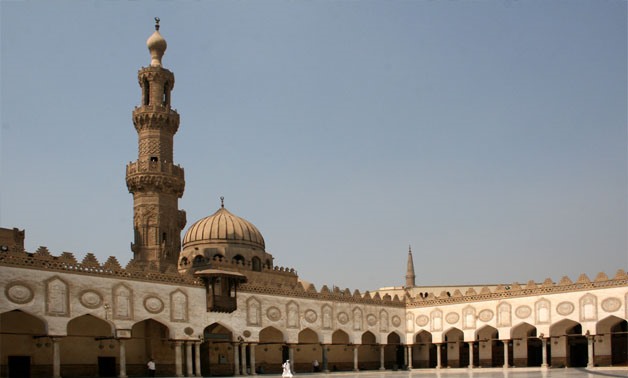
Al-Azhar Mosque - Wikimedia Commons
CAIRO – 12 May 2017: Measures to ensure the correct performance of religious ceremonies have been adopted by Egypt’s Ministry of Religious Endowment as the time for Ramadan approaches.
One of these main measures was the allocation of 3,453 mosques nationwide in which one would be able to perform Iʿtikaf (an Islamic practice involving the seclusion of a worshiper in a mosque for a certain number of days during Ramadan).
The Sharkia governorate has the largest share of authorized places of worship with 377 mosques, compared to the North Sinai which has only six mosques.
The order allowed only al-Azhar authorized imams to manage the Iʿtikaf process, religious preaching, Tarawih (supererogatory night prayers) during Ramadan. This move is intended to protect young people from extremism that can prevail in such places, which lack legal representatives to oversee the rituals.
Minister of Endowment, Mokhtar Gomaa, pointed out that the I'tikaf would be performed only under the supervision of al-Azhar preachers or those who have a new permit from the ministry. He added that the places of worship should be suitable in terms of service and ventilation.
The order stipulates that heads of endowment branches in different governorates shall submit detailed reports on the conditions of all mosques falling under their authority to ensure the safety of worshipers.
In addition, Gomaa stressed that the worshippers who are likely to perform I'tikaf must be residents in the same area of the authorized mosque, noting that each imam is required to make a list of the potential I'tikaaf performers at least a week before the process.
The minister warned against violating this order, pointing out that i'tikaf outside the framework of the ministry’s rules will be considered as illegal gatherings.
Supporters of the decision said that the unauthorized mosques threaten national security, as they fall outside the purview of the Ministry of Endowment and are used to spread subversive ideologies.
On the other hand, some Salafist figures argued that the ministry’s authorized preachers are not qualified enough to have the sole access to pulpits.
Salafist preacher Sameh Abdel Hamid underestimated the ministry’s threats to Salafists about preventing them from leading Tarawih prayers, noting that they lead these prayers every year normally.
He added that the Salafists usually pray in neighborhood mosques which do not belong to the ministry. However, they seek to coordinate with the ministry in regard with the I’tikaf at large mosques, Abdel Hamid said.
The ministry’s efforts to tighten its grip on the country’s mosques started earlier in 2013, when it decided to close down all places of worship of less than 80 square meters, also known as zawiyas (prayer corners). The government argued that such a decision was aimed to prevent extremists from spreading their thoughts among worshipers.
Comments
Leave a Comment